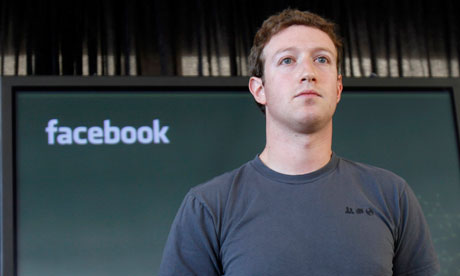NSA Spying On Canadians, CSEC Capable Of Similar Surveillance: Experts
The Huffington Post Canada | By Daniel Tencer Posted: 06/08/2013 2:50 pm EDT
The Obama administration was rocked this week by revelations that the U.S. National Security Agency collects millions of phone records from Verizon daily, and another report that a secret program called PRISM monitors users’ communications on the networks of numerous tech giants, including Apple, Facebook and Google.
“The NSA has obtained direct access to the systems of Google, Facebook, Apple and other US internet giants … which allows officials to collect material including search history, the content of emails, file transfers and live chats,” the Guardian reported.
That has raised concerns among privacy rights advocates that Canadians’ personal information may be getting caught up in the U.S.’s programs. Many experts say there is no “if” here; because of the integrated, international nature of online communication, it’s inevitable Canadians’ communications are being collected as part of the U.S. programs.
“There is no border,” Ronald Deibert, head of the University of Toronto’s Citizen Lab, told the Toronto Star. “The way telecommunication traffic is routed in North America, the fact of the matter is about 90 per cent of Canadian traffic — no one really knows the exact number — is routed through the United States.”
That data passes through “filters and checkpoints” and is “shared with third parties, with law enforcement and of course intelligence agencies that operate in the shadows,” he said.
But Canada may be carrying out its own versions of mass, warrantless surveillance; at the very least, experts say, treaties Canada has signed and clauses in national security laws give Canada’s government the legal leeway to do so.
Unbeknownst to most Canadians, Canada has laws on the books enabling monitoring that are very similar to the controversial provisions of the USA Patriot Act.
Michael Geist, a leading tech law expert, points out in a recent blog posting that section 21 of the Canadian Security Intelligence Act is “arguably similar” to a section of the Patriot Act.
“Both do not require probable cause and both can be used to obtain any type of records or any other tangible thing. Moreover, the target of both warrants need not be the target of the national security investigation,” Geist wrote

Sen. Dianne Feinstein (D-Calif.) said the court order for telephone
records was part of a three-month renewal of an ongoing practice, the Associated Press reported.
“It’s called protecting America,” Feinstein said at a Capitol Hill news conference.

“It’s called protecting America,” Feinstein said at a Capitol Hill news conference.

Sen. Jeff Merkley (D-Ore.) said in a statement:
“This type of secret bulk data collection is an outrageous breach of Americans’ privacy.”
 Read Full Article and See Additional Photos Here.
Read Full Article and See Additional Photos Here.
*****************************************************************************
|
The Government’s eavesdropping agency GCHQ is to give a parliamentary committee full details of its links to a controversial US internet monitoring programme, it has been revealed.
The Intelligence and Security Committee (ISC) will receive a report on claims that it received material through the secret Prism scheme ‘very shortly’, according to chairman Sir Malcolm Rifkind.
He said: ‘The ISC is aware of the allegations surrounding data obtained by GCHQ via the US Prism programme.
‘The ISC will be receiving a full report from GCHQ very shortly and will decide what further action needs to be taken as soon as it receives that information.’
MPs from the ISC will also seek reassurances from Washington that US spies are not snooping on the emails of British webs users on a trip to the US next week.

The ISC is going on a week long tour of the US and will meet senior figures from US intelligence agencies.
The development comes after it was claimed yesterday that British spies had access to the Prism system.
Secret documents published yesterday suggest the US National Security Agency (NSA) has direct access to data held by internet giants including Microsoft, Google, Yahoo, Facebook, YouTube, Skype and Apple.
The documents – which appear to be slides from a 41-page training presentation for intelligence agents – suggest the agency can access email, photographs, social network information, chat records and other ‘stored data’ held by the companies, as part of its ‘Prism’ project.
They also suggest the British government’s listening centre, GCHQ, has had access to the system since at least June 2010.
The project generated nearly 200 intelligence reports in the 12 months to May 2012, a 137 per cent increase on the previous year.
It is unclear whether other agencies, such as MI5 and MI6, were also involved, meaning the true extent of the snooping could be higher.
A GCHQ spokesman said ‘we do not comment on intelligence matters’, but added: ‘Our work is carried out in accordance with a strict legal and policy framework.’
Privacy campaigners warned that the revelations suggested the creation of a ‘Snooper’s Charter by the back door’.
They come after a proposed plan to pay internet companies to collate user data from UK computers was dropped only last month in the face of opposition from Tory backbenchers and Liberal Democrats.



Last night Labour called on David Cameron to come clean to MPs on the extent of Britain’s role.
Shadow home secretary Yvette Cooper said: ‘It is important for the UK intelligence community to be able to gather information from abroad including from the United States, particularly in the vital counter-terror work they do.
‘However, there also have to be legal safeguards in place, including proper protection for British citizens’ privacy, proper oversight and checks and balances to make sure intelligence powers are not misused.
‘And the public need confidence that their privacy is being properly respected and protected.
‘That is why the Prime Minister, Home Secretary and Foreign Secretary, and all the intelligence agencies should provide full information to the Intelligence and Security Committee as swiftly as possible, and the ISC should have full support to pursue this and report.’
The Guardian said it obtained the slides from a whistleblowing intelligence officer worried about invasions of privacy.
According to the newspaper, the Prism programme appeared to allow GCHQ to circumvent the formal legal process required to obtain personal material, such as emails, photographs and videos, from internet companies based outside the UK.
Reports by the paper and The Washington Post suggested the FBI and the NSA can tap directly into the central servers of nine leading internet companies.
But a number of them, including Google, Apple, Yahoo and Facebook denied the government had ‘direct access’ to their servers.
Microsoft said it does not voluntarily participate in any government data collection and only complies ‘with orders for requests about specific accounts or identifiers’.
Yet one slide appears to be a timeline of when the companies began to participate in Prism, starting with Microsoft in September 2007 and ending with Apple in October 2012.
According to the reports, Prism was established under President Bush in 2007 and has grown ‘exponentially’ under President Obama.
“This type of secret bulk data collection is an outrageous breach of Americans’ privacy.”

Sen. Lindsey Graham (R-S.C.) said he was “glad” the NSA was collecting phone records.“I
don’t mind Verizon turning over records to the government if the
government is going to make sure that they try to match up a known
terrorist phone with somebody in the United States, Graham said in an
interview on “Fox and Friends.”
*****************************************************************************
GCHQ is to give MPs full details of its links to controversial US internet spying programme
-
NSA’s Prism program launched in 2007 to mine personal data from 9 firms
-
Includes Apple, Facebook, Microsoft, Google, Yahoo, YouTube, Skype, AOL
-
GCHQ has secret deal with America’s NSA to share intelligence
-
Piles pressure on David Cameron as he attends top-secret Bilderberg meet
-
Anonymous leak US government documents, including various from Prism
-
Details of data collection were outlined in classified 41-slide PowerPoint presentation that was leaked by intelligence officer
-
GCHQ will provide a parliamentary committee full details of links with Prism
-
MPs from an intelligence watchdog will seek reassurances from Washington on a visit next week
|
The Government’s eavesdropping agency GCHQ is to give a parliamentary committee full details of its links to a controversial US internet monitoring programme, it has been revealed.
The Intelligence and Security Committee (ISC) will receive a report on claims that it received material through the secret Prism scheme ‘very shortly’, according to chairman Sir Malcolm Rifkind.
He said: ‘The ISC is aware of the allegations surrounding data obtained by GCHQ via the US Prism programme.
‘The ISC will be receiving a full report from GCHQ very shortly and will decide what further action needs to be taken as soon as it receives that information.’
MPs from the ISC will also seek reassurances from Washington that US spies are not snooping on the emails of British webs users on a trip to the US next week.

Sinister powers: Britain’s Government
Communications Headquarters, based in Cheltenham, Gloucs., is largely
responsible for monitoring the phone calls and emails of terror suspects
The development comes after it was claimed yesterday that British spies had access to the Prism system.
Secret documents published yesterday suggest the US National Security Agency (NSA) has direct access to data held by internet giants including Microsoft, Google, Yahoo, Facebook, YouTube, Skype and Apple.
The documents – which appear to be slides from a 41-page training presentation for intelligence agents – suggest the agency can access email, photographs, social network information, chat records and other ‘stored data’ held by the companies, as part of its ‘Prism’ project.
They also suggest the British government’s listening centre, GCHQ, has had access to the system since at least June 2010.
The project generated nearly 200 intelligence reports in the 12 months to May 2012, a 137 per cent increase on the previous year.
It is unclear whether other agencies, such as MI5 and MI6, were also involved, meaning the true extent of the snooping could be higher.
A GCHQ spokesman said ‘we do not comment on intelligence matters’, but added: ‘Our work is carried out in accordance with a strict legal and policy framework.’
Privacy campaigners warned that the revelations suggested the creation of a ‘Snooper’s Charter by the back door’.
They come after a proposed plan to pay internet companies to collate user data from UK computers was dropped only last month in the face of opposition from Tory backbenchers and Liberal Democrats.

Pressure: The disclosure will pile pressure on
David Cameron to explain how much he knew about the intrusion as he
prepares to attend the secretive Bilderberg conference today, a
closed-door meeting that conspiracy theorists already believe is where
leaders plot world domination

I know what you’re doing this summer: The Obama
administration defended the order on Thursday, calling it ‘a critical
tool in protecting the nation from terrorist threats’

‘Reprehensible’: Director of National
Intelligence James Clapper branded the program ‘reprehensible’ and said
it risks Americans’ security
Shadow home secretary Yvette Cooper said: ‘It is important for the UK intelligence community to be able to gather information from abroad including from the United States, particularly in the vital counter-terror work they do.
‘However, there also have to be legal safeguards in place, including proper protection for British citizens’ privacy, proper oversight and checks and balances to make sure intelligence powers are not misused.
‘And the public need confidence that their privacy is being properly respected and protected.
‘That is why the Prime Minister, Home Secretary and Foreign Secretary, and all the intelligence agencies should provide full information to the Intelligence and Security Committee as swiftly as possible, and the ISC should have full support to pursue this and report.’
The Guardian said it obtained the slides from a whistleblowing intelligence officer worried about invasions of privacy.
According to the newspaper, the Prism programme appeared to allow GCHQ to circumvent the formal legal process required to obtain personal material, such as emails, photographs and videos, from internet companies based outside the UK.
Reports by the paper and The Washington Post suggested the FBI and the NSA can tap directly into the central servers of nine leading internet companies.
But a number of them, including Google, Apple, Yahoo and Facebook denied the government had ‘direct access’ to their servers.
Microsoft said it does not voluntarily participate in any government data collection and only complies ‘with orders for requests about specific accounts or identifiers’.
Yet one slide appears to be a timeline of when the companies began to participate in Prism, starting with Microsoft in September 2007 and ending with Apple in October 2012.
According to the reports, Prism was established under President Bush in 2007 and has grown ‘exponentially’ under President Obama.
Facebook and Google insist they did not know of Prism surveillance program
Larry Page and Mark Zuckerberg sharply deny knowledge of Prism until Thursday even as Obama confirms program’s existence
- guardian.co.uk, Friday 7 June 2013 19.14 EDT

Mark Zuckerberg called the press reports about the existence of Prism ‘outrageous’. Photograph: Robert Galbraith/Reuters
With their credibility about privacy issues in sharp focus, all the technology companies said to be involved in the program issued remarkably similar statements.
All said they did not allow the government “direct access” to their systems, all said they had never heard of the Prism program, and all called for greater transparency.
In a blogpost titled ‘What the…?’ Google co-founder Larry Page and chief legal officer David Drummond said the “level of secrecy” around US surveillance procedures was undermining “freedoms we all cherish.”
“First, we have not joined any program that would give the US government – or any other government – direct access to our servers. Indeed, the US government does not have direct access or a ‘back door’ to the information stored in our data centers. We had not heard of a program called Prism until yesterday,” they wrote.
“Second, we provide user data to governments only in accordance with the law. Our legal team reviews each and every request, and frequently pushes back when requests are overly broad or don’t follow the correct process.”
The Google executives said they were also “very surprised” to learn of the government order made to obtain data from Verizon, first disclosed by the Guardian. “Any suggestion that Google is disclosing information about our users’ internet activity on such a scale is completely false,” they wrote.
Mark Zuckerberg, the founder and CEO of Facebook, described the press reports about Prism as “outrageous”. He insisted that the Facebook was not part of any program to give the US government direct access to its servers.
He said: “Facebook is not and has never been part of any program to give the US or any other government direct access to our servers. We have never received a blanket request or court order from any government agency asking for information or metadata in bulk, like the one Verizon reportedly received. And if we did, we would fight it aggressively. We hadn’t even heard of Prism before yesterday.”
Read Full Article Here
******************************************************************************
Related articles
- NSA Surveillance Program Oversight: White House, Congress Point Fingers At Each Other (huffingtonpost.com)
- Canadians not safe from U.S. online surveillance, expert says (thestar.com)
- Rubio Suggests Secret Spying ‘Just The Reality’ (huffingtonpost.com)
- Why Canadians Should Be Demanding Answers About Secret Surveillance Programs (michaelgeist.ca)
- NSA ‘top secret’ spying order affects millions of Americans: FAQ (zdnet.com)
- Are federal spy agencies monitoring Canadians’ communications (globalnews.ca)
- Sens. Jeff Merkley, Mark Udall, Ron Wyden strongly criticize domestic spying (dailykos.com)
- Rep. Ron Paul Calls NSA Spying a Victory for Terrorists, Some Senators Say It’s Fine (dailytech.com)
- guardian tecnologia: The west is moving towards China in its quest for mass surveillance | Henry Porter (guardian.co.uk)
- NSA Surveillance: Brits, Canadians Have Access to Your Data Too (news.antiwar.com)

No comments:
Post a Comment
Hello and thank you for visiting my blog. Please share your thoughts and leave a comment :)